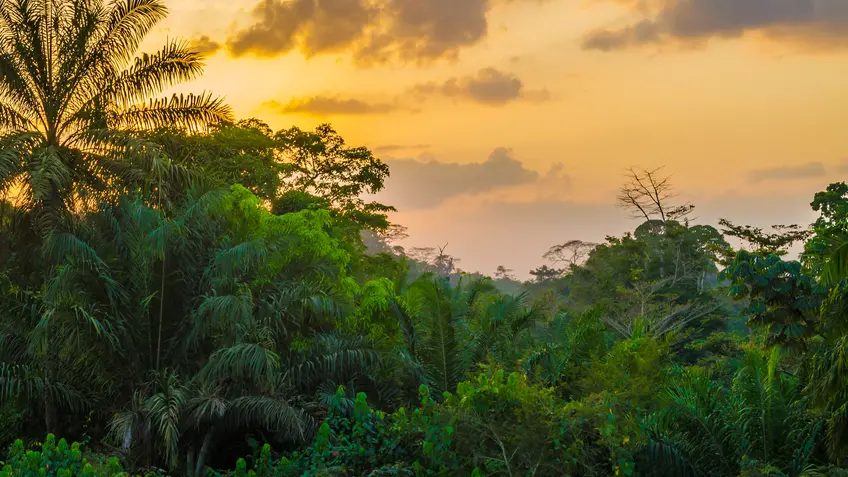Empowering Liberia's Green Recovery Through the NDC Partnership Action Fund
Liberia, in the heart of West Africa, is no stranger to existential threats. The country’s healthcare system, severely impacted by two civil wars over the last thirty years, was tested beyond its limit by the 2014-2016 ebola outbreak.
The outbreak was the largest on record, with 4,810 deaths recorded out of 10,678 confirmed cases in Liberia alone, and the subsequent inundation of healthcare services severely impacted malaria, HIV/AIDS and tuberculosis mortality rates across the country.
The COVID-19 pandemic further challenged the healthcare and socioeconomic structures of the country. However, due to its experience in extreme public health measures, Liberia found itself better positioned to deal with the disease surveillance and control logistics required in tackling such a threat.
Similarly, the Liberian Government aims to use its experience in crisis response to pre-emptively confront the future impacts of climate change. Liberia's lush landscapes, the very heart of its natural beauty and ecosystem services, are vulnerable to the impacts of a changing climate. Rising sea levels seriously threaten coastal communities and erratic weather patterns pose significant challenges to agricultural livelihoods, social stability and economic growth.
In August 2021, Liberia amplified its climate action ambition by submitting its revised Nationally Determined Contributions (NDC), pledging to reduce economy-wide greenhouse gas emissions by 64 percent below the projected business-as-usual (BAU) levels by 2030, a significant upgrade in commitment from its first NDC submission.
This process included a comprehensive national strategy and strategic framework for a robust national system for mitigation-related measurement, reporting, and verification (MRV), along with monitoring and evaluation (M&E) protocols for adaptation actions. Moreover, it detailed policy and institutional arrangements for implementation, conducted in-depth analyses of adaptation and mitigation co-benefits and outlined the necessary direct and indirect investments required for successful execution.
Liberia received invaluable technical assistance through the NDC Partnership’s Climate Action Enhancement Package (CAEP) in 2020 and 2021, implemented by Conservation International. This partnership facilitated data compilation, analysis, and cost assessments in diverse adaptation-related sectors, enabling Liberia to make informed decisions.
After the COVID-19 pandemic, the Liberian Ministry of Finance and Development Planning, supported by Conservation International through the Partnership Action Fund (PAF), embarked on a mission to prioritize a green recovery. An Economic Advisor was appointed to redefine strategies for “building back better”. This initiative encompassed a range of activities:
- Conducting Socio-Economic Assessments: Evaluating the pandemic's impact on the economy and national development plans, identifying opportunities to integrate climate actions and NDC targets into recovery plans.
- Identifying Climate-Resilient Investments: Quantifying low-carbon, climate-resilient investments for short, medium and long-term recovery, guiding the government's response.
- Designing Fiscal Instruments: Creating fiscal tools to stimulate green growth and leading efforts in drafting the revised national development plan.
- Supporting Resource Mobilization: Collaborating with national COVID-19 task forces to mobilize resources for economic recovery, prioritizing climate-related measures.
- Building Capacity: Raising awareness and enhancing national capacity across ministries to identify and develop climate financing initiatives, integrating them into COVID-19 response measures.
Through direct PAF support, the Ministry of Finance and Development Planning is also currently establishing a Climate Change Desk and supporting the development of County Development Agendas in coastal regions, reinforcing Liberia's climate resilience at the grassroots level.
Through support and collaboration, Liberia has embarked on a path that harmonizes economic recovery with environmental well-being. Coupling its lived-experience in disaster-risk reduction with inherent resilience and a desire for stability, the Liberian government is directly showcasing its commitment to robust climate action and a healthier, more prosperous future for all Liberians moving forward.
Cover photo: © Fabian / Adobe Stock
